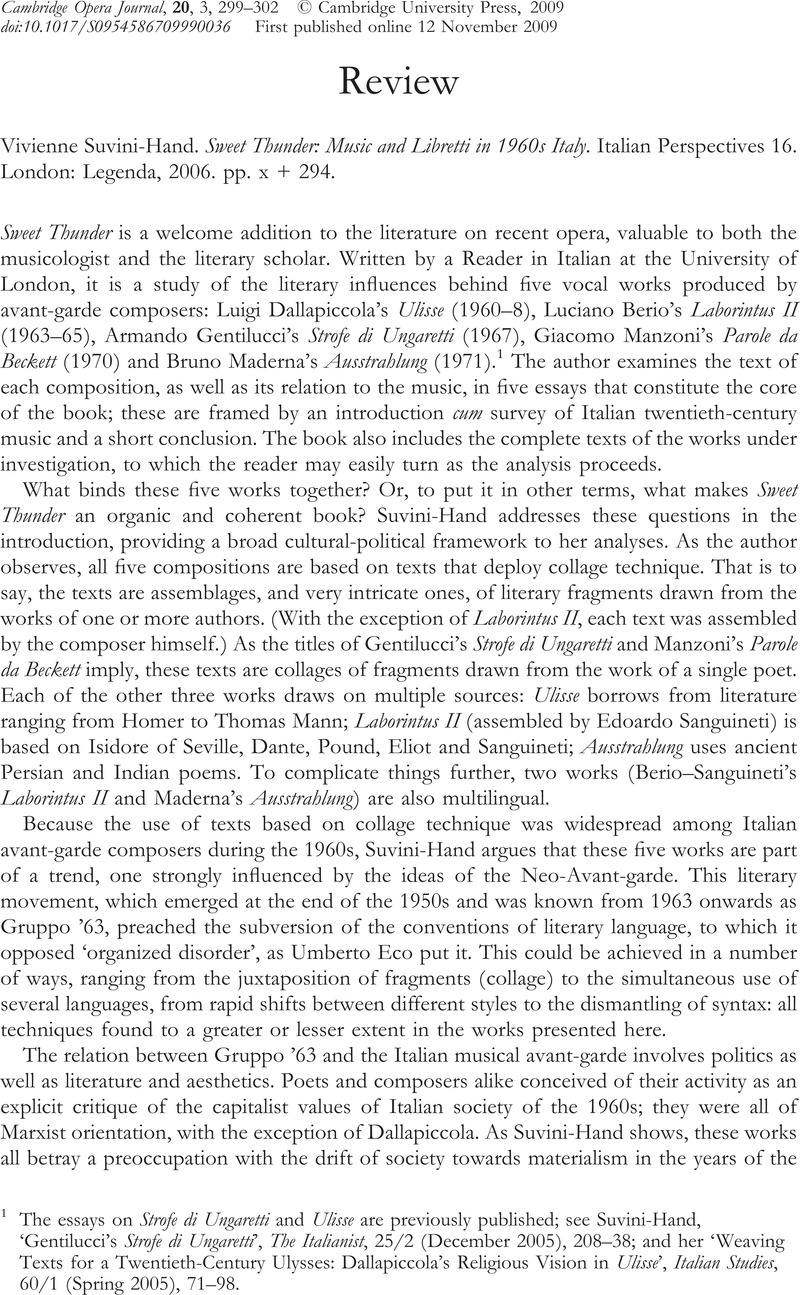No CrossRef data available.
Published online by Cambridge University Press: 12 November 2009

1 The essays on Strofe di Ungaretti and Ulisse are previously published; see Suvini-Hand, ‘Gentilucci's Strofe di Ungaretti’, The Italianist, 25/2 (December 2005), 208–38; and her ‘Weaving Texts for a Twentieth-Century Ulysses: Dallapiccola's Religious Vision in Ulisse’, Italian Studies, 60/1 (Spring 2005), 71–98.
2 Parole da Beckett was originally meant for the stage, but was eventually transformed into a piece for two choirs, three instrumental groups and tape. Its theatrical nature, as Suvini-Hand points out, is nonetheless retained through the spatial layout of the vocal groups and of the electronics. Maderna's Ausstrahlung, a work for soprano, orchestra, tape, solo oboe and solo flute, also creates a certain dramatic effect by means of the distribution of the text between female voice and tape.
3 See Luigi Dallapiccola, ‘Nascita di un libretto d'opera’, in Parole e Musica, ed. Fiamma Nicolodi (Milan, 1980), 511–31.
4 Peter Stacey, Contemporary Tendencies in the Relationship of Music and Text, with Special Reference to ‘Pli selon Pli’ (Boulez) and ‘Laborintus II’ (Berio) (New York and London, 1989). Another essay on Laborintus II appeared at about the same time as Suvini-Hand's: Ivanka Stoïanova, ‘Berio narrateur: Laborintus II’, in Omaggio a Luciano Berio, ed. Danielle Cohen-Levinas (Paris, 2006), 119–42. On Dantesque influences in Dallapiccola's Ulisse, see Pierluigi Petrobelli, ‘On Dante and Italian Music: Three Moments’, Cambridge Opera Journal, 2/3 (1990), 239–49.